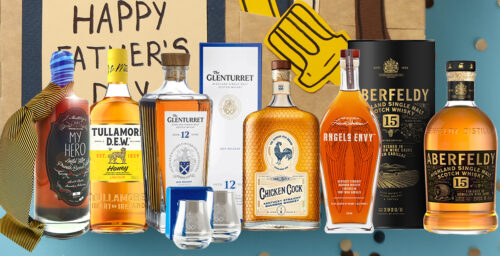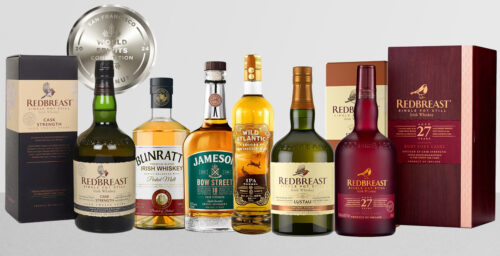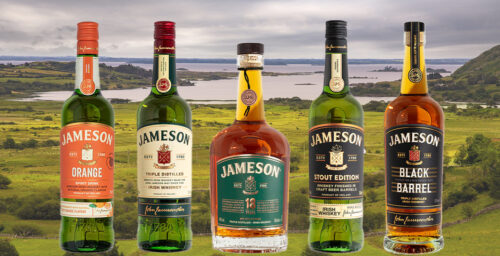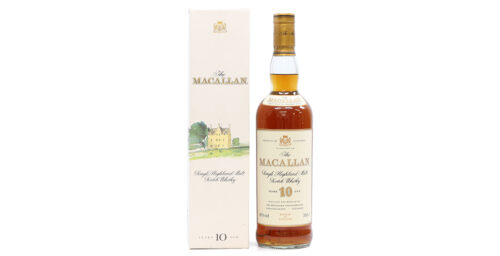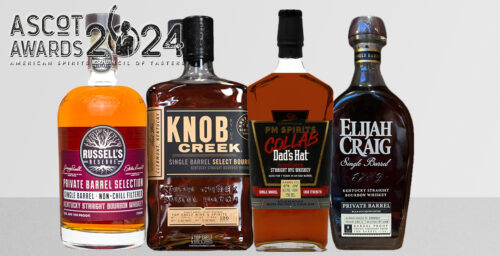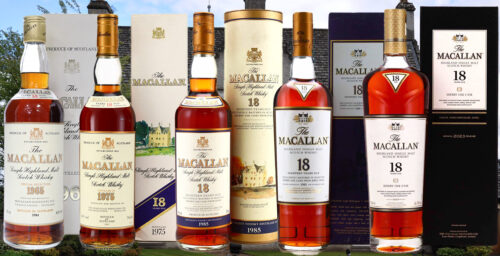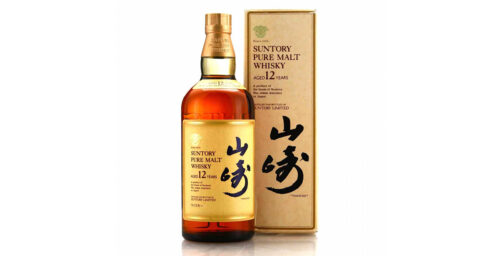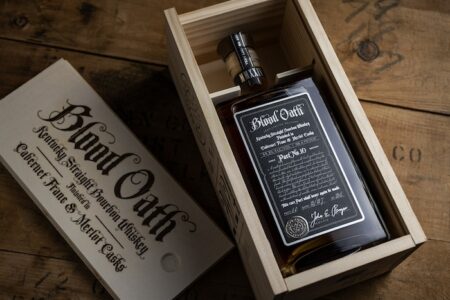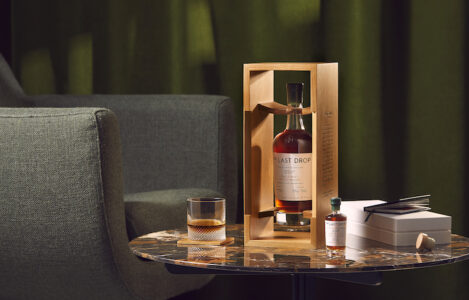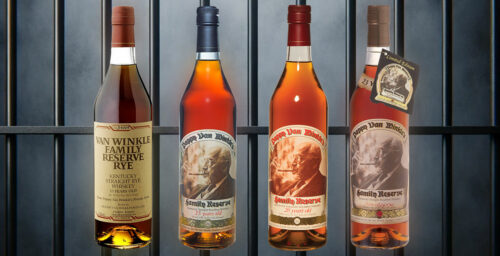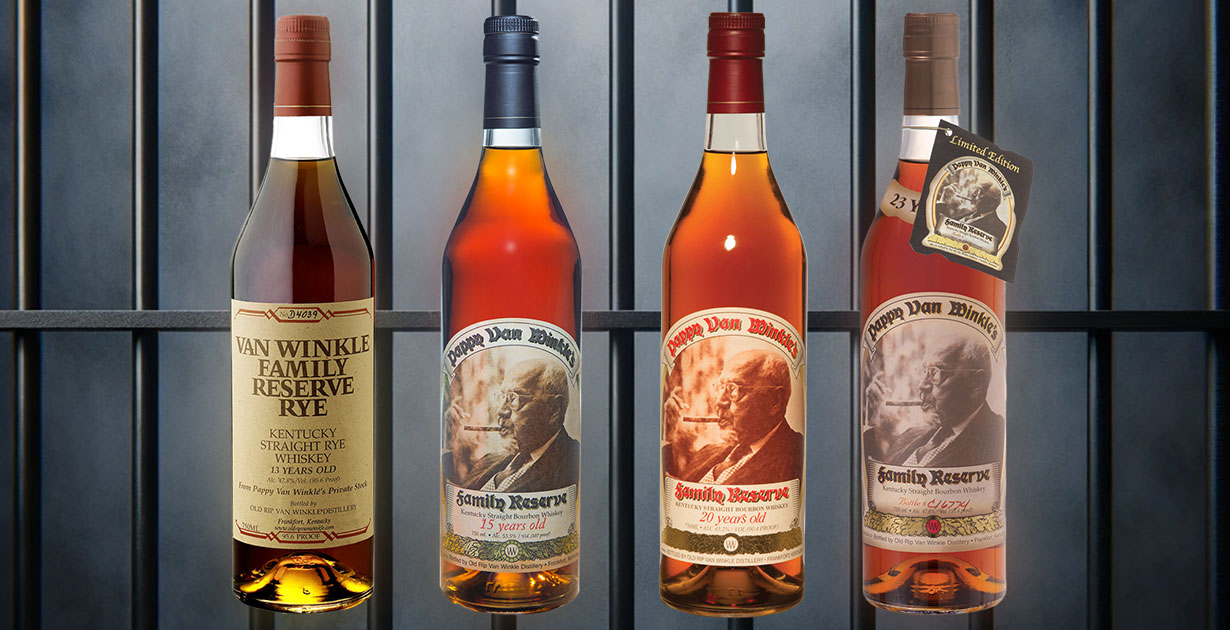
In October 2013, more than 200 bottles of the rare Pappy Van Winkle bourbon were reported missing from the Buffalo Trace Distillery in Kentucky. With the value of the stolen bottles estimated at $26,000, the incident quickly attracted attention and was nicknamed ‘Pappygate’ on social media, with the case later becoming the subject of Netflix’s ‘Heist’ documentary.
Exploring the theft, investigation, and suspects – here are five things you didn’t know about the ‘Pappygate’ mystery.
1. The ’Pappygate’ theft possibly occurred over months
The Pappy Van Winkle brand is synonymous with quality, and is undoubtedly one of the most sought-after collectible bourbons in the world. After Pappy Van Winkle’s Family Reserve 20 Year Old bottling scored a then-unheard-of 99 points at the World Spirits Championships 1998, the brand’s legendary reputation has continued to grow.
From 2002, a partnership between the Van Winkle family and Buffalo Trace meant all the brand’s production, from grain to bottling, occurred at the distillery in Frankfurt, Kentucky. The demand for, and scarcity of, Pappy Van Winkle is further enhanced as Buffalo Trace only produces approximately 7000 cases of the brand annually.
In October 2013, Buffalo Trace reported the theft of 65 cases of Pappy Van Winkle’s Family Reserve 20-Year-Old, and 9 cases of Van Winkle’s 13-Year-Old Family Reserve Rye, amounting to over 200 bottles. The retail value of the stolen bottles was $26,000, although due to ‘Pappy’s’ scarcity the estimated value of the whiskey on the secondary or black market was up to $100,000.
As no evidence of a break-in theft was recorded on the distillery’s security cameras, authorities quickly suspected an ‘inside job’, with individual bottles or single cases stolen over a period of months by a Buffalo Trace employee, or organized criminal gang. With a distillery site spread across 440 acres, Buffalo Trace had 450 employees and whiskey maturing in 15 warehouses – the opportunity for theft was evident. On December 2nd, 2013, Pat Melton, the Franklin County sheriff announced a $10,000 reward for information leading to a conviction.
2. ‘The Bourbon King’ wasn’t in possession of any Pappy Van Winkle when he was arrested
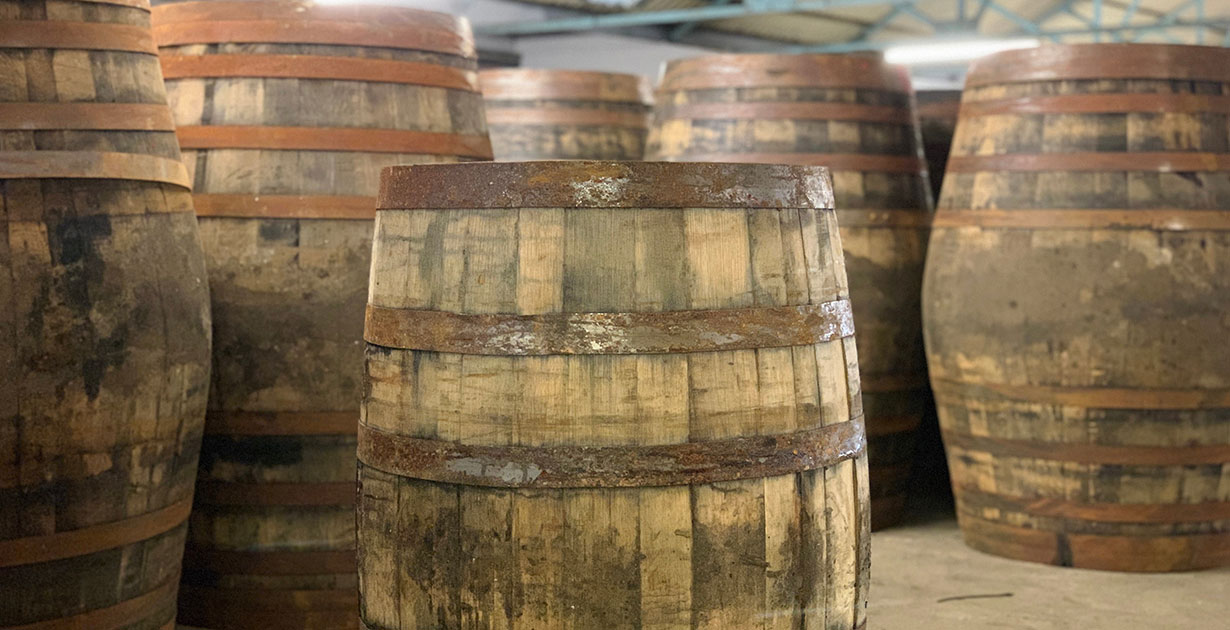
Despite interviewing over 100 Buffalo Trace employees the investigation stalled until March 2014, when the sheriff’s department text-tip line received anonymous information regarding an unrelated bourbon theft. The informant reported seeing whiskey barrels at the home of Gilbert “Toby” Curtsinger – a Buffalo Trace employee.
When Curtsinger’s house was searched, investigators discovered five barrels of bourbon in an outbuilding, spray painted to conceal identifying marks. These barrels were later revealed to have not originated from Buffalo Trace, but were filled with premium bourbon distilled by Wild Turkey, which hadn’t reported any whiskey missing – and had a combined value of $30,000. Inside Curtsinger’s home, sheriff’s deputies located 18 guns, $3,000 in cash, and a safe containing anabolic steroids.
The search of Curtsinger’s property did not locate any of the stolen Pappy Van Winkle, although when his phone was seized Curtsinger told deputies to ignore any text messages about selling Pappy, assuring them these were meant as jokes.
Using information from Curtsinger’s phones, on April 21st 2015, Curtsinger, his wife, Julie, his father-in-law, and seven other people were arrested on charges of operating a criminal syndicate trafficking (or bootlegging) bourbon. Amongst those allegedly involved were truck drivers, police and security guards, and three employees from Wild Turkey and Buffalo Trace. Toby Curtsinger would later be dubbed, ‘The Bourbon King’ in Netflix’s ‘Heist’ documentary.
3. Toby Curtsinger worked at Buffalo Trace for 26 years
Before the ‘Pappygate’ theft, Toby Curtsinger was employed in Buffalo Trace’s shipping department. It would later be reported that Curtsinger began stealing from the distillery in 2003 when a supervisor had tasked him with disposing of barrels of bourbon deemed not to meet standards.
Instead, Curtsinger had removed the barrels from the distillery site and sold the contents in plastic bottles to members of his softball team as ‘excess stock’. As Curtsinger gained a reputation as a fixer who could supply bourbon cheaply, the thefts escalated to include bottles and barrels of premium bourbon.
The Curtsinger investigation revealed a culture of theft amongst employees at Buffalo Trace, with staff providing evidence in exchange for immunity from prosecution. One co-worker told investigators that Curtsinger lent money to colleagues making them repay the debts with stolen bottles (including Pappy). Other incidents included concealing extra cases amongst shipments, and stealing bottles from unsecured warehouses, while one former employee confessed to a conspiracy to manipulate inventory figures to conceal an unrelated theft of up to 180 bottles of Pappy. Allegedly, upon learning of the security failures at Buffalo Trace the Van Winkle family threatened to terminate the contract to produce the Pappy brand at the distillery.
4. Any recovered bourbon had to be destroyed
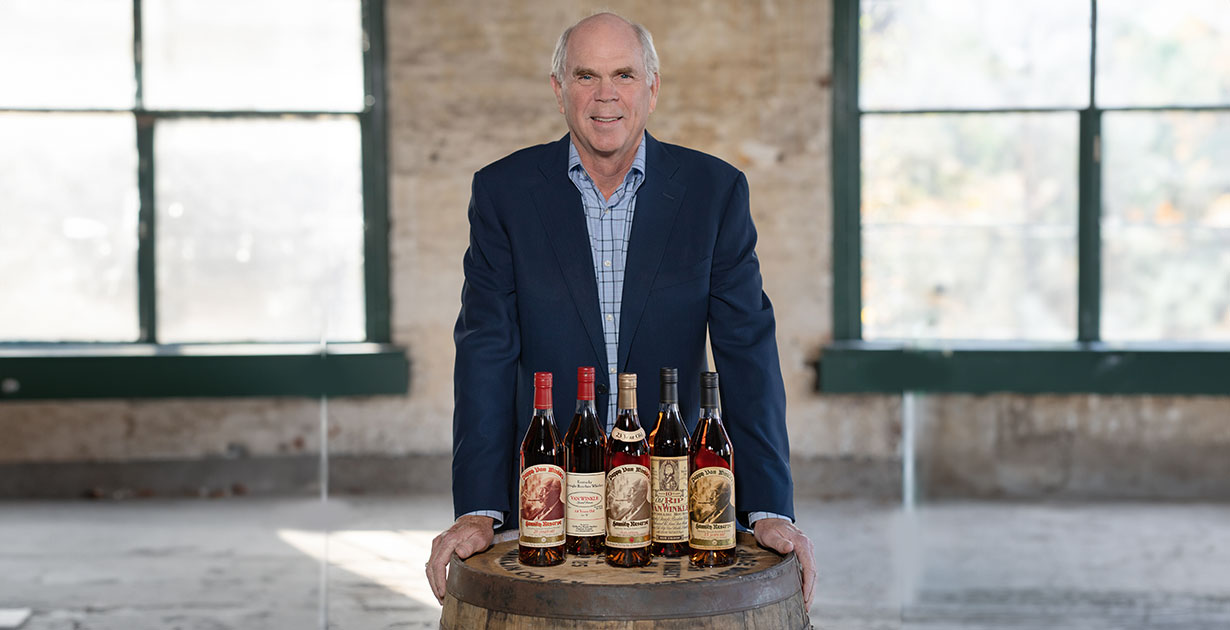
Julian
Following news reports of the house raid and Curtsinger’s arrest, a number of his alleged customers from across Kentucky contacted authorities to turn in bottles and barrels of Pappy and other premium bourbons. Over $100,000 of stolen whiskey was recovered, including 15 barrels of Wild Turkey, and a barrel of Eagle Rare bourbon purchased for $1500 – an official at Buffalo Trace later revealed the barrel was worth $11,000.
Only 26 bottles of Pappy Van Winkle were returned to the sheriff’s evidence room, with Franklin County sheriff, Pat Melton, later acknowledging the majority of the missing 200 bottles would probably never be recovered.
Julian Van Winkle III stated that the stolen whiskey returned should be destroyed as a precaution against tampering or contamination. Counterfeiters have been known to refill empty bottles of Pappy Van Winkle’s Family Reserve with cheaper bourbon – creating what is commonly known as ‘Poor Man’s Pappy’. After the conclusion of the case, a judge ordered the destruction of the recovered whiskey.
5. Toby Curtsinger was only imprisoned for 30 days
The ‘Pappygate’ investigation led to the indictment of 10 people on charges of operating an organized criminal syndicate, but Toby Curtsinger was the only one sentenced to prison as the alleged mastermind and ‘Bourbon King’. Curtsinger faced 15 years in prison but was only incarcerated for 30 days due to the shock probation program, used to deter first-time, non-violent offenders. Following his release in June 2018, Curtsinger would be monitored under parole supervision until 2023.
While Curtsinger would later offer his side of events in Netflix’s ‘Heist’, acknowledging some minor offenses, he has continued to protest his innocence and no involvement in the Pappygate thefts. The ‘Heist’ series suggests that Pappygate may have been perpetrated by Buffalo Trace employee, Greg Anglin, who later received immunity for testimony against Curtsinger. The truth will likely never be known, but the remaining missing bottles of Pappy Van Winkle are almost certainly long gone.

